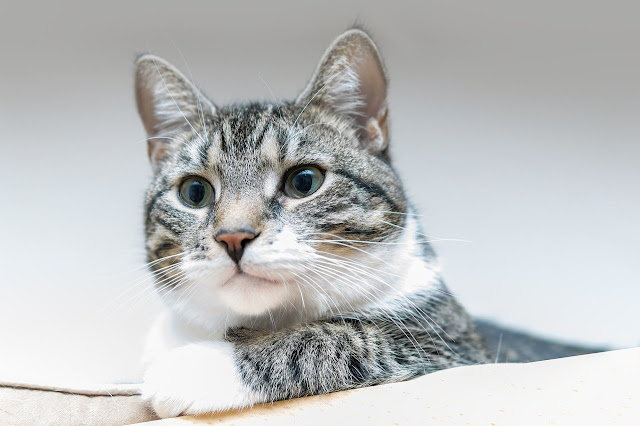Cat hair loss is a common problem faced by cat owners and usually results from stress or other environmental factors. Cat hair loss can also be caused by a number of medical conditions, many of which are treatable. There is a multitude of possible reasons why a cat may lose its hair.
Why your cat is loosing hair
1. Environmental factors
It is important to remember that there are many possible reasons why your cat may be losing hair. While some of these reasons are serious, others are not. However, if the problem continues on you should schedule an appointment with a veterinarian.
Many environmental factors can result in cat hair loss, including:
Illness: There are a number of illnesses that can cause excessive hair loss in a cat. These include:
Allergies: Allergic reactions in cats often lead to a condition known as flea-allergic dermatitis, which is a common cause of cat hair loss. A cat who has this will be itchy and have bald patches from where he is obsessively licking his skin.
Hairballs: Hairballs are another common cause of cat hair loss. When a cat grooms himself, he will ingest a lot of fur in the process. If this excessive amount is not properly eliminated it can lead to problems, such as impactions in the digestive tract and eventual hairballs in the stomach or intestines.
Canine Distemper: This is a viral disease that can cause hair loss in cats. It tends to be most common among kittens and very young cats, but it can occur at any age.
Fleas: If your cat has been diagnosed with flea-allergic dermatitis, then the first thing to do is to take care of the fleas in your home. You should treat all animals and people who have come in contact with the cat, as well as any areas that he has been to.
Skin Conditions: There are a number of skin conditions that can result in hair loss in cats, including mange, eczema, ringworm, dermatitis, and mites.
2. Stress:
In cats, hair loss is often a sign of stress or anxiety. This can be caused by changes to the cat's environment, new pets in the home, building works that have affected your cat, relocation, veterinary visits, or boarding kennels. By identifying the cause of the stress and doing what you can to alleviate it, you should be able to stop your cat from licking his fur and help him feel more comfortable.
3. Medical conditions:
There are a number of medical conditions that may cause hair loss in a cat. These include:
Anemia: If a cat is suffering from anemia, he will have pale gums and will lose his hair.
Cancer: There are a number of types of cancer that can cause cat hair loss. These include lymphosarcoma, leukemia, and oral squamous cell carcinoma.
Diabetes: If your cat is suffering from diabetes, he may have an increased appetite, which will lead him to swallow more fur while grooming.
4. Heartworm:
Heartworms are worms that live in the heart and blood vessels of an animal. A cat with heartworm will usually experience weight loss, increased thirst, and vomiting, as well as muscle pain and coughing.
Lice: Lice can cause itchiness in your cat's skin, which may result in him over-grooming and losing hair.
Lupus: Lupus is an autoimmune disease that may cause hair loss in your cat, as well as other symptoms, such as fever, vomiting, and diarrhea.
Ringworm: Ringworm is another type of fungal infection that can result in hair loss. It can also cause scaly skin that itches, redness, and swelling of the skin.
5. Hormonal Conditions :
There are a number of hormonal conditions that can cause hair loss in cats, these include hypothyroidism, Cushing's disease, and hyperadrenocorticism.
Treatment for Hair Loss in Cats
The treatment for hair loss in cats is often symptomatic and this will depend on the underlying cause. However, here are some general tips to try:
1. Make sure your cat's living area is free from dust and dander. This area should also be kept clean and free from such things as cigarette smoke. It should also not contain any chemicals that may irritate your cat's skin or nose.
2. If your cat is stressed, anxious, or going through a stressful event in his life, then you should try to alleviate this. You can do this by providing him with a safe, comfortable, and familiar living area that he will not be afraid to come back to. This could be a room in your home where there are no large animals or things that he could get stressed about.
3. If your cat is living outdoors, you should provide him with a warm and safe shelter where he will feel secure and comfortable. This could be as simple as a box with hay or leaves inside it.
Conclusion
The reasons for hair loss in cats can be hard to determine. It may occur due to hormonal or medical conditions, or it could simply be due to stress or anxiety. If you notice that your cat is constantly scratching himself, then this should raise some alarm bells and he should be checked out by a veterinarian. This will enable the vet to rule out any medical conditions, and if necessary prescribe your cat medication.



.jpg)